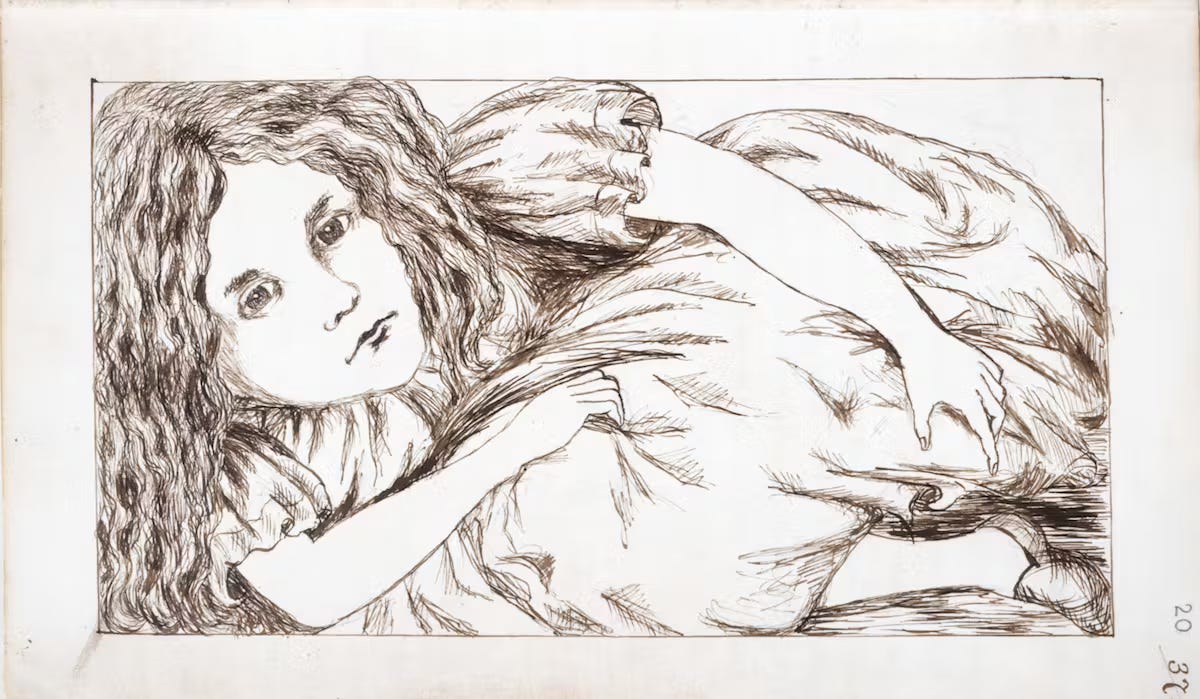The Adoption of Roles & Impersonations
Often, a person's “inner self” is incongruent with their self-expression in the outer world. Simply put, one internally feels livid yet has a smile on one’s face, perhaps even offering a kind gesture like opening the door for a person. Such is the case of persons who wrestle with mental disorders of varying kinds.
The Diagnostic and Statistical Manual, full of mental disorder symptomatology, expresses the inner ache of the soul’s inability to express externally the truth living within.
The Survival Self adopts roles and impersonations in one’s relations with the outer world, to avoid the humiliation, punishment, or shame that one may have already experienced, or could experience, in being “oneself.”
Role: Roles are not necessarily chosen by those who fulfill them. Instead, a family's system assigns various family members certain roles to maintain a dysfunctional homeostasis. Examples of roles played in families are peacemaker, hero, mediator, black sheep, scapegoat, parental child, marital child, and rescuer.
Impersonation: impression management (controlling how others perceive us), or the introjection (internalization of the beliefs, values, or attitudes of others, often those who are significant in their life, such as parents or authority figures) of the characteristics of the person or persons upon whom compliance, or subservience is based. For example, a daughter may begin to act like aspects of her mother in her outward expressions, that she abhors or hates about her mother, in her true self.
This concept of roles and impersonations is not just theoretical; it resonates with my own experiences of childhood.
Childhood Trauma
When I was a little girl, disciplinary practices were used to ensure I was being a “good girl.”
These practices included spanking, washing my mouth out with soap, writing sentences, and time-out (all practices supported by the Evangelical Church and Focus on the Family). I learned early that certain behaviors might elicit this kind of discipline in my household, and so, I learned to lie to avoid getting “in trouble.”
And the lying, turned into pretending, the pretending into performance, the performance into entire personas, until I was so fragmented from my true self (my inner self) that I wore a smile on my face, and in private, forced myself to purge up to three times a day, for a decade in my early life.
This early conditioning showcases how my Survival Self emerged, driven by fear and a need for acceptance, ultimately leading to a disconnect from my True Self.
Parents do not have to perform overt acts of harm on a child to ensure their Survival Self develops, and the inner truth within hides. Parents who consistently hover over their children in fear or who are emotionally unavailable instill in the younger generation that their True Selves are not welcome.
Parents who treat their children this way reveal the ways they, too, were harmfully treated. This is intergenerational trauma. If we do not acknowledge and face how we were treated as children, we will unconsciously pass this harm onto the next generation. If you are a parent who passed on some of these harmful ways of relating, you can hold deep self-compassion for yourself— you did the best you could do with what you were given. You, too, were deeply hurt when you were vulnerable.
The Objectification of Self and Other in the Survival Self
When one is living within the Survival Self, they are not a person to themselves or others, but more of a thing. One has become an object to other people. And in this objectification, they are treated as though they do not exist. In the face of not being treated as if one exists, one may not treat oneself as if one exists, or others as if they exist. We learn if we are loved, or not, through relationships. If you struggle with loving yourself or treating yourself or others as though you or they exist, it is because you were not loved or treated like you existed.
Seeing yourself or others as objects was not something you were born with; it is the internalized patterning of people who treated you poorly. It happened through repetitive mistreatment by people who were meant to love you and support your aliveness, freedom, and self-expression.
To learn more about objectification and objects in psychotherapy, read Jeremy Berger’s recent essay:
Have you ever been conversing with someone who talks “at” you, as if you are not there? Even if you begin to reveal, in your body language, that you are wrestling with being present in the conversation, their eyes are flat-lined on the horizon, as if you did not exist.
Even if you try to insert yourself, they continue to speak. And so, you may acquiesce, listen compliantly, as if you are a role (an object), not a person. The role you are asked to play, which you may acquiesce to in your Survival Self, is to be a compliant listener. In this case, a way to break the Survival Self patterning would be to interrupt the person, leave the conversation, or communicate that you are not interested in being in a one-way conversation, or whatever else is authentically arising within you in this exchange.
The Survival Self develops rapidly in childhood, the True Self locks itself in a cage, and the cage’s steel forms around it. Even if the cage is decorated with fancy jewelry, a happy American family, nice cars, and status, the True Self is locked in a prison. Other prisons are decorated with jail sentences, struggling finances, and a series of broken relationships. Our prisons can be decorated with all kinds of decor.
We may value, as a culture, those people who are educated, have seemingly functional families, and have successful careers, and see those who do not as less mature or developed. This is not necessarily true. Outer appearance can reveal a lot about a person, but it can also tell you nothing about who a person is deep inside.

The Self Growth Industry and How to Keep it Real
If there is any hope for healing for any of us, this healing is the dismantling of the Survival Self and the ability to express the True Self. Yet, even when the Survival Self is dismantled, the bare bones of why it developed in the first place will always be there. By this I mean, none of us can erase our history, the memories of hurt that shaped us into developing roles, or impersonating others rather than being authentic to who we truly are.
Keeping the ways our hearts were broken close to our hearts keeps us humble.
Our greatest wounds can become sacred wounds, as desecrated soil can be regenerated.
If your life isn’t going how you want it, it’s likely because your heart was broken somewhere along the way. Any industry of healing that doesn’t address heartbreak or addresses it by trying to manage or fix it takes us further away from our humanity.
I often find it objectifying when a client comes to work with me, and wants me to perform tricks on them, and ends our relationship within two or three sessions when I don’t. They want me to do things to them, show them my psychotherapeutic muscles. Play the expert therapist role. I won’t do it. After years of dismantling my Survival Self, I’m not interested in performing expert as a psychotherapist.
I am a person, as are you.
It’s not necessarily anyone’s fault; the whole self-growth industry is marketed in the consciousness of experts solving problems.
And yet, I’m not an expert on you, or anyone else, for that matter.
What I can offer, however, is the wisdom I have gained from diving deep into the dark, facing my Survival Self, and reclaiming my soul. I can walk with others as they venture toward the truth of their soul. But I am not here to be an expert on you or anyone else's life.
At its heart, psychotherapy is a human journey involving two souls encountering one another in mystery and becoming more human in the process.
We practitioners are offered the gift of supporting others as they become responsible for their own lives and heartbreak, too.
Contending with the depth of lovelessness most of us experience in this world is no easy task, nor is self-responsibility, nor is opening our hearts back up to love after betrayal, abandonment, and objectification.
This path is also much harder to sell. It is easier to sell oneself as an " expert” or the one who can “fix” and “solve” problems.
I hope it will not always be this way. I hope that one day, it will be most dominant in our culture, that money is exchanged in service to the human soul and heart, and care for the more-than-human world rather than the focus on solving problems, dehumanization, and ecocide.

Reflection Questions:
What survival roles have you adapted in the face of lovelessness?
If you stopped living your life performing who you feel others want you to be, how would you spend your time, and with whom?
If you are a parent, in what ways did you see the lovelessness you experienced in your own childhood, pass onto the way you related or still relate to your children?
What are some recent situations in your life where you noticed yourself being the compliant listener? Or, treating others as if they did not exist?
What was your family's relationship to grief, sorrow, heartbreak, and suffering?








Thought provoking as always, THANK YOU! Reflecting on my life, YES, there have been times I used playing a role to SURVIVE a very difficult situation. Learning and adapting it's been a journey. Hunter explains it best for me: "Every man is the sum total of his reactions to experience. As your experiences differ and multiply, you become a different man, and hence your perspective changes. This goes on and on. Every reaction is a learning process; every significant experience alters your perspective."
Hunter S. Thompson